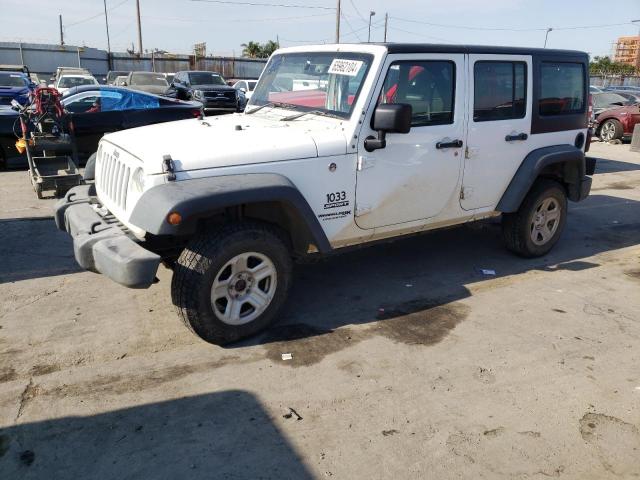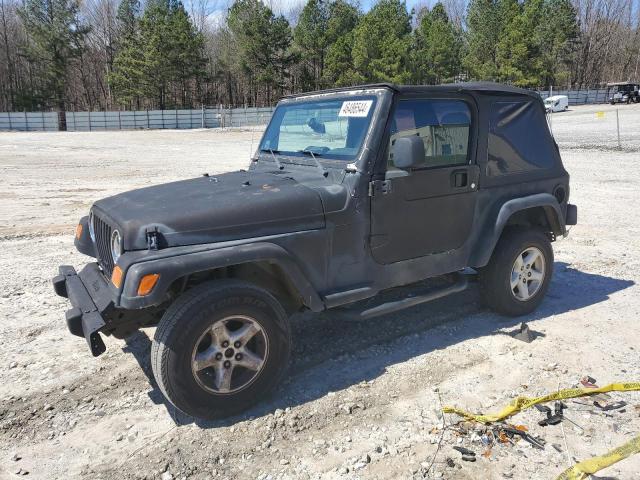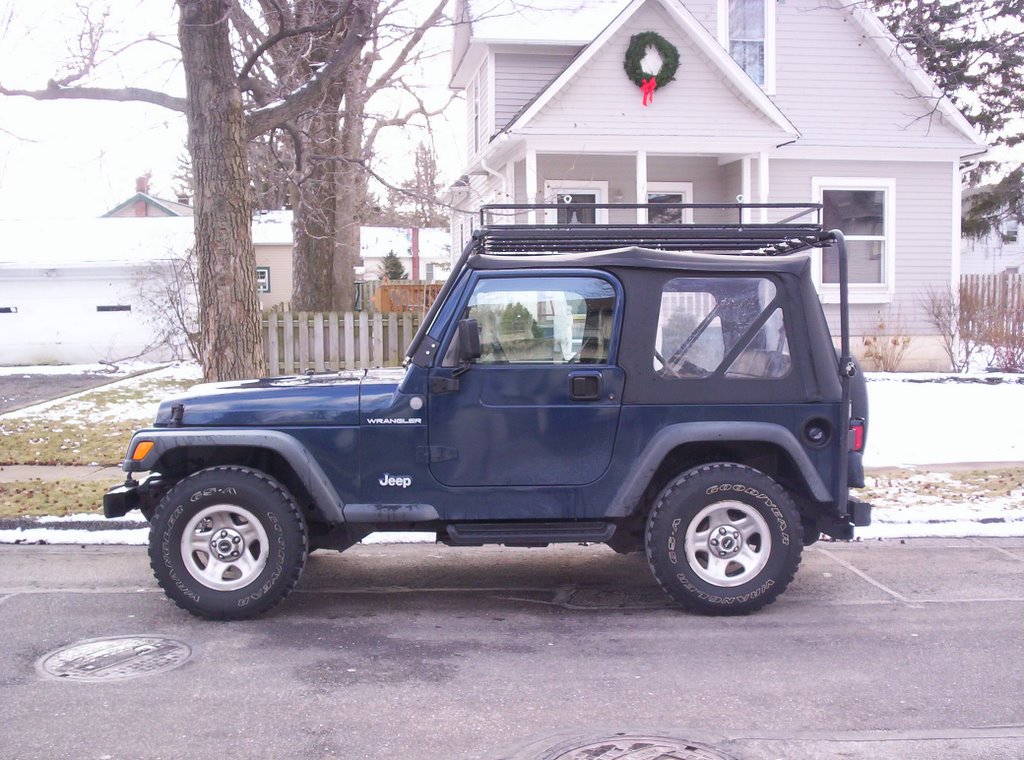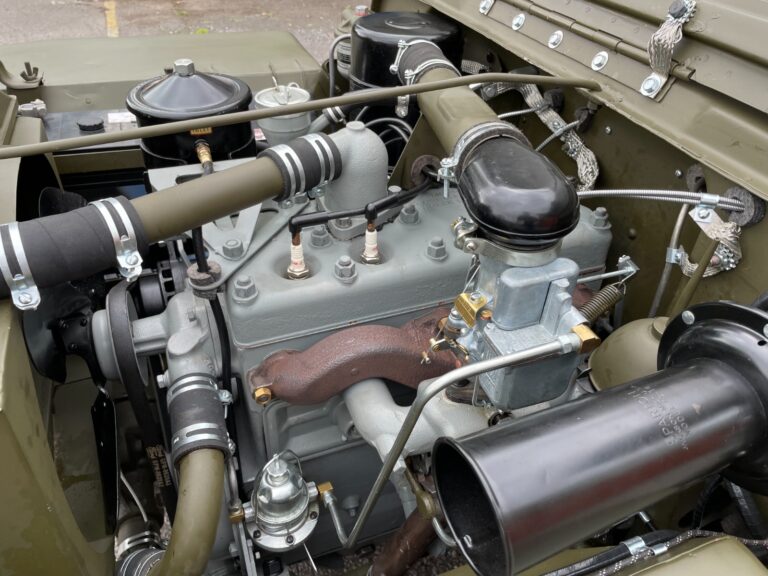Salvage Jeep For Sale: Your Comprehensive Guide to Unearthing Value and Adventure
Salvage Jeep For Sale: Your Comprehensive Guide to Unearthing Value and Adventure jeeps.truckstrend.com
The allure of a Jeep is undeniable. From its iconic seven-slot grille to its legendary off-road prowess, a Jeep embodies freedom, adventure, and rugged capability. However, the price tag on a new or even a used Jeep can often be a significant hurdle for many enthusiasts. This is where the world of "Salvage Jeep For Sale" enters the picture, offering a unique, often more affordable, pathway to owning one of these beloved vehicles.
But what exactly does "salvage" mean in the context of a vehicle, and why would anyone consider buying one? This comprehensive guide will delve deep into the intricacies of purchasing a salvage Jeep, exploring the benefits, risks, processes, and essential tips to help you navigate this potentially rewarding, yet challenging, market.
Salvage Jeep For Sale: Your Comprehensive Guide to Unearthing Value and Adventure
What is a Salvage Title? Understanding the Foundation
Before diving into the "for sale" aspect, it’s crucial to understand the very definition of a salvage title. A salvage title is a brand issued by a state’s Department of Motor Vehicles (DMV) or equivalent agency to a vehicle that has been declared a "total loss" by an insurance company. This declaration typically occurs when the cost to repair the vehicle exceeds a certain percentage of its actual cash value (ACV) – usually between 50% to 100%, depending on state laws and the insurer’s policy.
Common reasons a vehicle might receive a salvage title include:
- Collision Damage: Severe accidents where structural integrity is compromised or repair costs are prohibitive.
- Flood Damage: Extensive water intrusion that damages electrical systems, interior, and mechanical components.
- Theft Recovery: If a vehicle is stolen and recovered with significant damage, or if the insurer has already paid out a claim before recovery.
- Vandalism: Major damage from malicious acts.
- Hail Damage: Severe body damage from hailstorms that can be costly to repair.
- Fire Damage: Extensive damage from a fire.

It’s vital to distinguish a salvage title from a "clear" title (which indicates no major damage history) and a "rebuilt" or "reconstructed" title. A rebuilt title is issued after a salvage vehicle has been repaired, inspected, and deemed roadworthy by the state. A salvage title means the vehicle is not legal to drive on public roads until it undergoes the necessary repairs and passes a state inspection to be rebranded as "rebuilt."
Why Consider a Salvage Jeep? Unearthing the Value

The idea of buying a damaged vehicle might seem counterintuitive to some, but for the right buyer, a salvage Jeep can present a compelling opportunity.
1. Significant Cost Savings
This is arguably the primary driver for most buyers. Salvage Jeeps are typically sold at a fraction of the cost of their clear-titled counterparts. Depending on the extent and type of damage, you could acquire a relatively new model for 30-60% less than market value. This substantial discount allows enthusiasts to enter the Jeep ownership world without breaking the bank.
2. The Ultimate Project Vehicle
For mechanics, DIY enthusiasts, or those looking to learn, a salvage Jeep is an ideal project. It offers a hands-on learning experience in automotive repair, allowing you to understand your vehicle inside and out. The satisfaction of bringing a damaged Jeep back to life can be incredibly rewarding.

3. Customization and Upgrades
Since you’re already investing in repairs, it’s an opportune time to incorporate aftermarket upgrades. Whether it’s a lift kit, new bumpers, winches, or enhanced off-road components, you can build your dream Jeep from the ground up, tailored precisely to your specifications, often at a lower overall cost than buying a clear-titled Jeep and then modifying it.
4. Parts Donor Vehicle
Sometimes, a salvage Jeep is too extensively damaged to be economically repaired for road use. In such cases, it can serve as an invaluable source of spare parts for another Jeep you own, or its components can be sold individually, recouping some of your investment.
5. Off-Road and Trail Use
If your primary intention is to use the Jeep exclusively for off-roading on private land or dedicated trails, the title status becomes less critical. A salvage title might allow you to acquire a capable off-road machine at a much lower price, without the worry of cosmetic perfection.
The Risks and Challenges: A Realistic Perspective
While the benefits are attractive, buying a salvage Jeep is not without its significant risks and challenges. A clear understanding of these potential pitfalls is crucial for a successful purchase.
1. Unknown Extent of Damage
The most significant risk is hidden damage. What appears to be minor cosmetic damage could mask serious structural issues, frame damage, or complex electrical problems that are expensive and difficult to diagnose and repair. Flood-damaged vehicles, in particular, can suffer from insidious electrical corrosion that manifests long after the initial purchase.
2. Difficulty with Insurance
Insuring a rebuilt salvage vehicle can be challenging. Some insurance companies may refuse to offer comprehensive or collision coverage, or they may only offer liability insurance. Those that do offer full coverage might cap the payout at a lower percentage of the vehicle’s market value, or only pay out what you paid for the vehicle plus documented repair costs, rather than its market value.
3. Impact on Resale Value
Even after being repaired and retitled as "rebuilt," a vehicle with a prior salvage history will always have a lower resale value compared to an equivalent clear-title vehicle. The "stigma" of a salvage title can deter many potential buyers, making it harder to sell down the line.
4. Safety Concerns
Improperly repaired vehicles can pose serious safety risks. Structural integrity might be compromised, airbags may not deploy correctly, or braking systems could be faulty. Professional, thorough repairs are paramount to ensure the vehicle is safe for operation.
5. Complexity of the Rebuilding Process
The journey from salvage to rebuilt title involves significant effort. It requires sourcing parts, performing repairs (often extensive), and then navigating state-specific inspection processes that can be stringent and time-consuming.
Where to Find Salvage Jeeps For Sale
Knowing where to look is the first step in your salvage Jeep journey.
- Online Salvage Auction Sites: These are the most common platforms.
- Copart: One of the largest global vehicle auction companies, offering a vast inventory of salvage, clear title, and even stolen-recovered vehicles.
- Insurance Auto Auctions (IAAI): Another major player, similar to Copart, with a wide selection of salvage vehicles from insurance companies.
- AutoBidMaster / CrashedToys / SalvageReseller: These are often brokers or partners that provide access to Copart and IAAI auctions for individuals who may not have a dealer’s license.
- Local Salvage Yards/Auto Recyclers: Many local yards acquire salvage vehicles directly from insurers or through auctions. Visiting them in person allows for direct inspection.
- Specialized Salvage Dealerships: Some dealerships specialize in buying, repairing, and selling rebuilt title vehicles. While they handle the repair process, their prices will be higher than direct auction purchases.
- Online Classifieds (Caution Advised): Websites like Craigslist or Facebook Marketplace occasionally list salvage vehicles. Exercise extreme caution, as private sellers may not disclose the full extent of damage or title history. Always verify the VIN.
Steps to Buying a Salvage Jeep: A Practical Guide
Purchasing a salvage Jeep requires diligence and a methodical approach. Follow these steps to maximize your chances of a successful acquisition:
1. Research the Damage History (VIN Check)
Before bidding or buying, obtain the Vehicle Identification Number (VIN) and run a comprehensive VIN check through services like CarFax or AutoCheck. This report will detail the vehicle’s accident history, previous owners, odometer readings, and, most importantly, any salvage declarations. Pay close attention to the nature of the damage that led to the salvage title.
2. Inspect the Vehicle Thoroughly
This is the most critical step.
- In-Person Inspection: If possible, always inspect the vehicle in person before bidding. Bring a knowledgeable mechanic or a body shop expert with you. Look for signs of frame damage, rust, hidden welds, misaligned panels, fluid leaks, and water lines if it was flood-damaged.
- Professional Pre-Purchase Inspection: If an in-person visit isn’t feasible (common with online auctions), many auction sites offer third-party inspection services. While not as good as your own expert, it’s better than nothing.
- Photos and Videos: Scrutinize all available photos and videos provided by the seller or auction house.
3. Estimate Repair Costs
Based on your inspection, get professional estimates for the necessary repairs. Factor in parts, labor, and potential unforeseen issues. This estimate is crucial for determining if the total cost (purchase price + repairs) makes financial sense. Don’t forget costs for a new set of tires, fluids, and possibly a battery.
4. Understand State-Specific Titling Laws
Every state has different requirements for converting a salvage title to a rebuilt title. Research your state’s DMV website to understand:
- Required inspections (e.g., anti-theft inspection, safety inspection).
- Documentation needed for parts used (receipts, donor vehicle VINs).
- Fees associated with the inspection and new title.
- Any restrictions on specific types of salvage vehicles (e.g., flood-damaged).
5. Budget for Everything
Your budget should include:
- The purchase price of the salvage Jeep.
- Auction fees, buyer premiums, and transportation costs.
- Repair costs (parts, labor, paint).
- State inspection fees for the rebuilt title.
- New registration and plate fees.
- Contingency fund for unexpected issues (at least 20-30% of your estimated repair costs).
6. Negotiate the Price
Whether you’re bidding at an auction or buying from a local yard, always try to negotiate. If you have clear repair estimates, use them as leverage.
The Rebuilding Process: From Wreck to Roadworthy
Once you’ve acquired your salvage Jeep, the real work begins.
- Safety First: Prioritize structural and safety repairs. This includes frame straightening, suspension components, brakes, steering, and airbag systems. These areas should ideally be handled by certified professionals.
- Document Everything: Keep meticulous records of all repairs, parts purchased (with receipts), and labor performed. This documentation will be essential for the state inspection and for future resale.
- Source Parts Smartly: Look for used OEM parts from reputable auto recyclers (salvage yards) or aftermarket parts. Compare prices and quality.
- DIY vs. Professional Help: Decide which repairs you can confidently tackle yourself and which require professional expertise. Don’t compromise on safety-critical components.
- State Inspection: Once all repairs are complete, schedule the mandatory state inspection. The vehicle must pass all safety and anti-theft checks to be issued a rebuilt title.
Tips for a Successful Salvage Jeep Purchase
- Be Patient: Don’t rush into a purchase. The right deal might take time to appear.
- Know Your Skill Level: Be realistic about your mechanical abilities. If you’re not experienced, factor in professional labor costs.
- Focus on Frame and Powertrain: Prioritize a Jeep with an intact frame and a seemingly healthy engine/transmission. Cosmetic damage is generally easier and cheaper to fix than core mechanical or structural issues.
- Avoid Flood Damage Unless Expert: Flood-damaged vehicles are notorious for long-term electrical and corrosion issues that are incredibly difficult and expensive to remediate fully.
- Factor in Insurance Costs: Get insurance quotes before you buy, so you’re not surprised by limited coverage or high premiums.
Price Table: Understanding Salvage Jeep Value Ranges
It’s impossible to give exact prices for salvage Jeeps as they vary wildly based on make, model, year, trim, mileage, location, and crucially, the extent and type of damage. However, here’s a representative table showing typical ranges for popular Jeep models in salvage condition, assuming varying levels of repairable damage.
| Jeep Model (Example Years) | Damage Type | Estimated Salvage Price Range (USD) | Factors Influencing Price |
|---|---|---|---|
| Jeep Wrangler JK/JL (2010-2020) | Light Cosmetic (e.g., fender, bumper) | $3,000 – $8,000 | Year, mileage, engine type, transmission, 2D/4D, extent of cosmetic damage. |
| Moderate Collision (e.g., front/rear end, non-structural) | $6,000 – $12,000 | Same as above, plus drivability, airbag deployment, availability of parts. | |
| Heavy Damage (e.g., minor frame, rollover, flood) | $1,000 – $5,000 | Extent of frame damage, water level, fire damage, engine condition, salvage for parts only. | |
| Jeep Grand Cherokee (2012-2020) | Light Cosmetic (e.g., door, quarter panel) | $2,500 – $7,000 | Trim level (Laredo, Limited, Overland, Summit, SRT), engine, 2WD/4WD, features. |
| Moderate Collision (e.g., side impact, suspension) | $5,000 – $10,000 | Airbag status, engine/transmission condition, luxury features. | |
| Heavy Damage (e.g., severe front impact, flood) | $800 – $4,000 | Frame integrity, engine status, potential for total loss. | |
| Jeep Cherokee/Compass/Renegade (2015-2020) | Light Cosmetic | $1,500 – $4,000 | Model, year, mileage, engine size, FWD/4WD. |
| Moderate Collision | $3,000 – $7,000 | Drivability, airbag status, structural integrity for unibody vehicles. | |
| Heavy Damage | $500 – $2,500 | Engine/transmission condition, cost of unibody repair. |
Important Note: These are highly generalized ranges. A low-mileage, newer model with light cosmetic damage will always fetch a higher salvage price than an older, high-mileage vehicle with severe structural damage. Always perform your due diligence.
Frequently Asked Questions (FAQ)
Q1: Can I get insurance on a salvage Jeep?
A1: Typically, you cannot get full coverage (collision and comprehensive) insurance on a salvage titled vehicle. Once it has been repaired, inspected, and issued a rebuilt or reconstructed title, you usually can obtain insurance. However, some companies may offer limited coverage or charge higher premiums, and the payout in case of a future total loss might be capped at the repair costs plus purchase price, not market value.
Q2: Is it safe to drive a rebuilt salvage Jeep?
A2: If the repairs are performed correctly by qualified professionals and the vehicle passes all state safety and anti-theft inspections, a rebuilt salvage Jeep can be just as safe as a clear-title vehicle. The key is the quality of the repair and the thoroughness of the inspection.
Q3: How much does it cost to rebuild a salvage Jeep?
A3: The cost varies wildly depending on the extent and type of damage, the Jeep model, and whether you do the repairs yourself or hire professionals. Minor cosmetic repairs might cost a few hundred to a couple thousand dollars. Major structural or mechanical repairs could easily run into $5,000 to $15,000 or more, potentially exceeding the vehicle’s value.
Q4: Can I register a salvage title Jeep?
A4: No, a vehicle with a "salvage" title cannot be legally registered or driven on public roads. It must undergo all necessary repairs, pass a state-mandated inspection, and be issued a "rebuilt" or "reconstructed" title before it can be registered and driven.
Q5: Will a salvage title affect resale value?
A5: Yes, significantly. Even a rebuilt title will always carry a "stigma" that lowers its resale value compared to an equivalent clear-title vehicle. Buyers are often wary of past damage, making it harder to sell and commanding a lower price.
Q6: What’s the difference between "salvage" and "rebuilt" titles?
A6: A salvage title indicates the vehicle was declared a total loss by an insurer and is not roadworthy. A rebuilt title (or reconstructed title) is issued after a salvage vehicle has been fully repaired, inspected by the state, and deemed safe and roadworthy again.
Conclusion
Buying a salvage Jeep is not for the faint of heart, nor is it a guaranteed bargain. It’s a venture that demands thorough research, a realistic assessment of risks, a solid understanding of automotive repair, and careful financial planning. For the seasoned mechanic, the avid DIYer, or the enthusiast looking for a deeply customizable project, a salvage Jeep can be a golden opportunity to own a coveted vehicle at a significantly reduced cost.
However, for those seeking a turn-key solution or who are unfamiliar with vehicle repair, the complexities and potential hidden costs may outweigh the initial savings. By approaching the "Salvage Jeep For Sale" market with diligence, patience, and an informed perspective, you can potentially transform a damaged vehicle into your next great adventure companion, ready to tackle trails and turn heads, all while enjoying the satisfaction of having brought it back to life.




